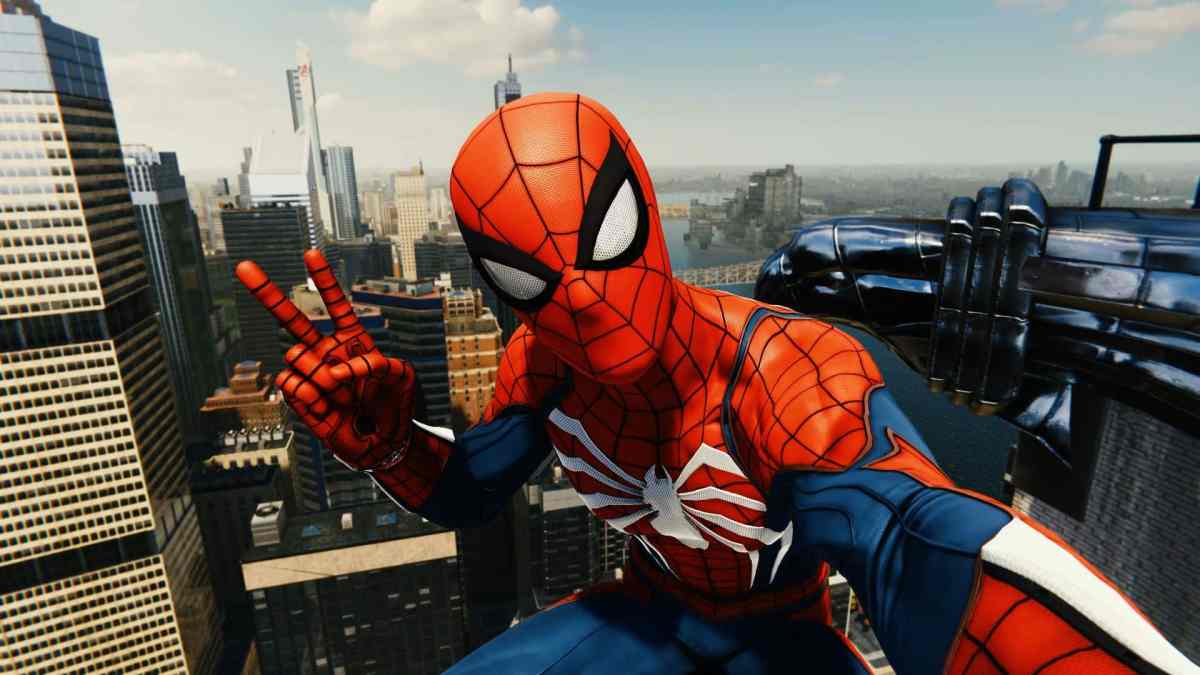Marvel’s Avengers just can’t seem to catch a break. After going radio silent for years following its first tease, the ambitious project from Square Enix and Crystal Dynamics was met with some middling responses and tempered expectations once gameplay and details got out there in the wild. While the idea of the game sounds great on paper — combining a shared-world action RPG like Destiny with some of the most popular characters on the planet seems like a no-brainer — something about the actual gameplay just looked off. And as we creep even closer to its Sept. 4 release date, another announcement stirred the pot even more — Spider-Man would be added to the game in 2021, but only on the PlayStation 4 and PlayStation 5 versions.
While exclusive games and platform-specific content for games are nothing new, especially with Microsoft and Sony on the verge of releasing their new hardware this fall, there was something about this news that didn’t sit well with a lot of folks. Because as great as this news is for people who planned on playing the game on PlayStation, it feels like a slap in the face to anyone who might’ve thought about becoming an Avenger on Xbox or PC. Furthermore, for a game that plans on having a long tail with constant updates far into the future, this news feels like just another way Marvel’s Avengers might be stumbling out of the gate from the start.
On paper, the deal makes sense. The connection between the Sony brand and Spider-Man is palpable throughout all of pop culture, from the public negotiations over the use of the character in the Marvel Cinematic Universe, to the creation of a separate and tangential universe with characters like Venom and the upcoming Morbius, to the popularity of Spider-Man: Into the Spider-Verse, and even to Insomniac’s massively successful Spider-Man game for PlayStation 4, which led to Sony acquiring the developer and bringing it into its first-party family.

It’s not a surprise that Sony wants to associate itself with Marvel’s most popular superhero in yet another way, especially when you factor in that one of the biggest games coming around the launch of the PlayStation 5 is Spider-Man: Miles Morales, and a true sequel to Insomniac’s 2018 adventure is almost certainly in development. But again, even if it’s a wise move of corporate synergy on Sony’s part, it leaves a bad taste in the mouth for anyone who might be thinking of putting their time and money into the game on a non-PlayStation platform.
Character exclusivity certainly isn’t new in video games. One of the more famous examples of segmenting your audience came back in the prime of the Soulcalibur series. Back in 2002, Soulcalibur II released on Xbox, PlayStation 2, and GameCube, but with the added wrinkle that each console had one specific exclusive character. Xbox players got Todd McFarlane’s Spawn, PS2 got Tekken’s Heihachi (famously a last-minute addition after a deal to include Final Fantasy VII’s Cloud fell through), and Nintendo fans got Link from The Legend of Zelda. And while Link was objectively the best character of that trio, choosing one meant missing out on the other two.
Jumping forward to 2008, Namco did a similar thing with Soulcalibur IV, including Darth Vader in the PlayStation 3 version of the game and Yoda in the Xbox 360 one. Which was kind of absurd, considering how pretty much every single person wanted to pit these two against each other, but couldn’t. Some years later, Namco finally made the characters available as DLC on the opposite consoles, but by then it felt like the divide had already been set.
At least in these examples, every side walked away from the table with something, as opposed to Marvel’s Avengers, which, at this moment in time, seems to leave Xbox, PC, and Stadia with empty pockets.

It feels like every time we see a story about some major game going cross-play and breaking down barriers, we get another that solidifies that the console war narrative isn’t going away any time soon. That’s a bummer, because that’s pretty much the most boring conversation that anyone can have when it comes to video games. And no matter which console you own, it’s ultimately a bad move for consumers as a whole. It feels like this move greatly reduces the chances of us seeing cross-platform play from Marvel’s Avengers down the road, which is a major disappointment heading into the next generation.
Looking back historically, I feel like Rise of the Tomb Raider’s year-long Xbox exclusivity hurt the franchise’s growth this past generation, possibly contributing to the sequel’s lower sales when compared to those of its predecessor, so it’s ironic to see Square Enix and Crystal Dynamics back at it again. I think we’re going to be seeing an escalation in exclusivity deals like this ones. This isn’t just a Sony problem — I fully expect similar deals to be struck with other third-party games on Xbox. In a way, it feels like we’re children of divorce, watching on as our parents engage in a cold war of one-upmanship that’s less about our own best interest and more about theirs.
In an interview with ComicBook.com, Crystal Dynamics studio head Scot Amos gave a bit of an expected non-answer when asked about Spider-Man’s exclusivity in the game. After touting the relationship that Sony has with the character, he went on to say, “But I really do think people will look at this and say, ‘Yeah, okay, we get that, we can understand the business behind that’, but in general, we’re making this game for everybody.”

While I understand that this deal most likely stemmed from higher corporate-level conversations, it feels like mixed messaging to tout one version of the game as being superior, while still saying that they’re making the game for everybody. I would be curious to hear candid remarks from all parties involved, including Microsoft, but I’m not holding my breath for that.
It’s one thing for Sony or Microsoft to help fund and publish a third-party game (like Insomniac’s Spider-Man or Rise of the Tomb Raider) or to include some exclusive cosmetic things for whichever side the marketing campaign is on (which is also very much happening with the PlayStation version of Marvel’s Avengers). However, to lock away the most popular superhero on one specific version of the game is not only a bad move for consumers, but also not a great move for the game as a whole, especially after it had a rough first few gameplay drops.
We’ll have to wait and see how this ultimately pans out. But in the meantime, it’s ironic that in a game centered around the concept of reuniting the Avengers, the definition of that team will be different depending on which company’s expensive box you choose to assemble them on.






Published: Aug 8, 2020 01:29 pm